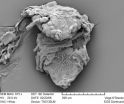(Press-News.org) A national survey finds most physicians believe Medicare reimbursement is inequitable, but there appears to be little consensus regarding proposed reforms, according to a report in the October 25 issue of Archives of Internal Medicine, one of the JAMA/Archives journals.
"Across the political spectrum, there is general agreement that the cost of health care has risen to untenable levels and is threatening the future of Medicare and the economic well-being of the United States," the authors write as background information in the article. Clinicians account for one-fifth of health care costs, but because their patterns of use drive other expenses, many proposals for reform have focused on clinician reimbursement as a target to promote cost savings while improving care. Strategies that have been proposed include financial bonuses for meeting quality standards, financial penalties for providing substandard care, bundling payments for episodes of care into a fixed amount and the promoting of accountable care organizations.
Alex D. Federman, M.D., M.P.H., of Mount Sinai School of Medicine, New York, and colleagues conducted a national survey of randomly selected physicians between June 25 and Oct. 31, 2009. Participants were asked whether, under the current Medicare reimbursement system, some procedures were reimbursed too highly and others at rates too low to cover costs. They then rated their support for several reform proposals.
Of 2,518 eligible physicians who received the survey, 1,222 (48.5 percent) responded. Four of five clinicians (78.4 percent) agreed that current Medicare reimbursement was inequitable. However, "there was little unity regarding support for physician payment reform proposals," they write.
Among the reform options, participants were most likely to support financial incentives for quality care (49.1 percent). "Actual experience with financial incentives to improve quality could have directly informed physicians' generally more positive views of these types of reimbursement mechanisms," the authors write.
Overall, 41.6 percent of participants supported shifting payments from procedures to management and counseling services, but there was even less consensus on this proposal. For instance, 66.5 percent of generalists supported it compared with 16.6 percent of surgeons. "As expected, those who conduct procedures were against it, and those who do more management and counseling were for it," they continue.
Most physicians from all specialties (69 percent) were opposed to bundling. Surgeons, who may have the most experience with this strategy, expressed the lowest level of support (15.2 percent). Conversely, most physicians (79.8 percent) supported increasing pay for generalists and only 13.3 percent opposed this strategy. However, few (39.1 percent) would agree to offset this increase with a 3 percent reduction in specialist reimbursement.
"Overall, physicians seem to be opposed to reforms that risk lowering their incomes," the authors conclude. "Thus, finding common ground among different specialties to reform physician reimbursement, reduce health care spending and improve health care quality will be difficult. Research that clarifies the tradeoffs physicians would be willing to accept in payment reform, and other concerns, may help refine the design of payment reforms and improve acceptance among physicians."
INFORMATION:
(Arch Intern Med. 2010;170[19]:1735-1742. Available pre-embargo to the media at www.jamamedia.org.)
Editor's Note: This project was supported by a grant from the Robert Wood Johnson Foundation and also by grants from the National Institute on Aging; the National Heart, Lung and Blood Institute; and the Veterans Administration Health Services Research and Development Service. Please see the article for additional information, including other authors, author contributions and affiliations, financial disclosures, funding and support, etc.
To contact Alex D. Federman, M.D., M.P.H., call Christie Corbett at 212-241-9200 or e-mail christie.corbett@mountsinai.org.
For more information, contact JAMA/Archives Media Relations at 312/464-JAMA (5262) or e-mail mediarelations@jama-archives.org.
Physicians agree Medicare reimbursement is flawed, disagree on how to reform it
2010-10-26
ELSE PRESS RELEASES FROM THIS DATE:
Blood pressure checks performed by barbers improve hypertension control in African-American men
2010-10-26
LOS ANGELES (STRICTLY EMBARGOED UNTIL 3 PM CDT ON OCT. 25, 2010) – Neighborhood barbers, by conducting a monitoring, education and physician-referral program, can help their African-American customers better control high blood pressure problems that pose special health risks for them, a new study from the Cedars-Sinai Heart Institute shows.
The study -- the first to subject increasingly popular barbershop-based health programs to a scientific scrutiny with randomized, controlled testing -- demonstrates the haircutters' heart health efforts work well enough that they ...
Bicarbonate adds fizz to players' tennis performance
2010-10-26
Dietary supplementation with sodium bicarbonate (baking soda) on the morning of a tennis match allows athletes to maintain their edge. A randomized, controlled trial reported in BioMed Central's open access Journal of the International Society of Sports Nutrition found that those players who received the supplement showed no decline in skilled tennis performance after a simulated match.
Chen-Kang Chang from the National Taiwan College of Physical Education, Taiwan, worked with a team of researchers to carry out the study. He said, "We found that sodium bicarbonate supplementation ...
Huge amber deposit discovered in India
2010-10-26
Those who are proud to have a piece of amber that holds a little animal trapped in it maybe should not continue to read this. For what can be seen in the millions of years-old tree resin is almost always just a paper-thin façade. If sliced down the middle, you would find no more than a hollow space covered in some sort of "insect photo wallpaper."
This does not apply to the amber Bonn paleontologist Professor Dr. Jes Rust and his colleagues have been looking at for two years. The lumps that resemble herbal cough drops are "full of it," containing numerous insect bodies, ...
Anti-cholesterol drugs could help stave off seizures: UBC-Vancouver Coastal Health research
2010-10-26
Statins, the family of drugs used to lower cholesterol, might also reduce the risk of epileptic seizures in people with cardiovascular disease, according to a new statistical study by a drug safety expert at the University of British Columbia and Vancouver Coastal Health Research Institute. The findings could provide the basis for randomized, controlled clinical trials to test the efficacy of the drugs as anti-epileptic medication.
The study, based on a database of 2,400 Quebec residents aged 65 and older, showed that those taking statins were 35 per cent less likely ...
New trove of fossils suggests global distribution of tropical forest ecosystems in the Eocene
2010-10-26
Bees, termites, spiders, and flies entombed in a newly-excavated amber deposit are challenging the assumption that India was an isolated island-continent in the Early Eocene, or 52-50 million years ago. Arthropods found in the Cambay deposit from western India are not unique—as would be expected on an island—but rather have close evolutionary relationships with fossils from other continents. The amber is also the oldest evidence of a tropical broadleaf rainforest in Asia. The discovery is published this week in Proceedings of the National Academy of Sciences.
"We know ...
Decoding the disease that perplexes: Salk scientists discover new target for MS
2010-10-26
LA JOLLA, CA-Scientists are closer to solving one of the many mysteries of multiple sclerosis and other demyelinating diseases, thanks to a recent study conducted at the Salk Institute for Biological Studies. The research revealed a previously unknown connection between two ion channels, which, when misaligned, can cause the many bizarre symptoms that characterize the condition.
The findings, reported in this week's online edition of the Proceedings of the National Academy of Sciences (PNAS), provide fresh insights into the mechanisms underlying MS and suggest a novel ...
Heart disease prevention program saves lives and reduces costs, Kaiser Permanente study finds
2010-10-26
DENVER — A new study from Kaiser Permanente Colorado is one of the first to show that an intensive population management program that matches heart disease patients to personal nurses and clinical pharmacy specialists not only reduces the risk of death but reduces health care costs as well.
The findings are published in the November issue of the journal Pharmacotherapy.
Researchers examined health care expenditures in two populations of patients with heart disease: a group of 628 people enrolled in the Kaiser Permanente Collaborative Cardiac Care Service, a population ...
New fog warning system in Venice region pays for itself 10 times over
2010-10-26
Fog is a relatively frequent phenomenon in the Po Valley and constitutes a major issue for all road traffic. The new fog warning system covers and benefits the entire Venice Region, combining VTT`s know-how on intelligent transport and evaluation of information services. The system is expected to provide services for regular and professional motorists and transport companies as well as authorities. These types of warning solutions are expected to be in demand on a larger scale in the future as they have positive safety effects and are very profitable socio-economically. ...
Scientists reveal the sex wars of the truffle grounds
2010-10-26
They are one of the most highly prized delicacies in the culinary world, but now scientists have discovered that black truffles are locked in a gender war for reproduction. The research, published in New Phytologist as the truffle season begins, represents a breakthrough in the understanding of truffle cultivation and distribution.
The teams, led by Dr Francesco Paolocci and Dr Andrea Rubini from the CNR Plant Genetics Institute in Perugia and by Dr Francis Martin from INRA in Nancy, carried out their research on the reproduction strategy of the highly prized black ...
Sleep disturbances show clear association with work disability
2010-10-26
Sleep disturbances increase the risk of work disability and may slow the return to work process. This is especially true in cases where work disability is due to mental disorders or musculoskeletal diseases. These results come from a recent study conducted by the Finnish Institute of Occupational Health in collaboration with the universities of Turku and London.
The research is being conducted as part of two major research projects on social capital in the workplace (Kunta10) and on well-being in the hospital workplace. The follow-up study is part of the Academy of Finland ...


